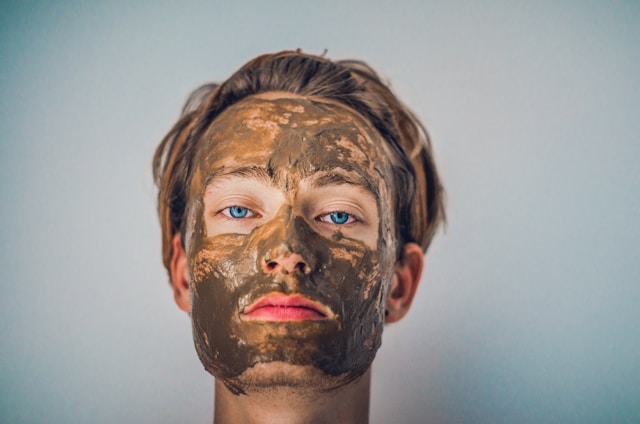Understanding Anxiety: What It Is and How to Cope
Anxiety is something almost everyone experiences at some point in their life. It’s that feeling of unease, worry, or fear that can crop up when facing stressful situations—like a job interview, public speaking, or even daily concerns about health or relationships. However, for many people, anxiety is more than just a fleeting emotion; it can become a chronic condition that affects daily life. So, what exactly is anxiety, and how can we better understand and manage it?
1. What is Anxiety?
At its core, anxiety is a natural response to stress. It’s part of the body’s “fight or flight” mechanism, designed to alert us to potential threats and keep us safe. But while feeling anxious in certain situations is normal, ongoing or excessive anxiety can be problematic. This is when it crosses into the realm of an anxiety disorder, a mental health condition that can significantly impact a person’s well-being and functionality.
People with anxiety disorders often find themselves worrying excessively about everyday situations. These worries can become overwhelming, making it difficult to focus, sleep, or enjoy daily activities. Common anxiety disorders include generalized anxiety disorder (GAD), panic disorder, social anxiety disorder, and specific phobias.
2. Symptoms of Anxiety
Anxiety manifests in many ways—both physically and mentally. While everyone experiences it differently, some common symptoms include:
- Physical Symptoms: Racing heart, shortness of breath, sweating, trembling, dizziness, headaches, stomach aches, or muscle tension.
- Mental Symptoms: Persistent worry, fear, irritability, difficulty concentrating, and restlessness.
Sometimes, these symptoms can appear suddenly, while other times, they build up gradually over time. In severe cases, anxiety can lead to panic attacks, which are sudden bursts of intense fear that may feel life-threatening.
3. Why is Anxiety on the Rise?
In recent years, anxiety has become more prevalent, with some experts linking its rise to factors such as the COVID-19 pandemic, increased social media use, and the fast pace of modern life. Many people have found themselves struggling with uncertainty about their health, jobs, or the future, leading to heightened levels of stress and anxiety.
Additionally, mental health awareness has improved, and more people are now recognizing and seeking help for their anxiety, contributing to the increase in diagnosed cases. This shift is positive, as it encourages individuals to address mental health concerns rather than ignoring them.
4. Coping with Anxiety
The good news is that anxiety, even when it feels overwhelming, is manageable. There are several strategies that can help reduce its impact:
-
Cognitive Behavioral Therapy (CBT): CBT is one of the most effective treatments for anxiety disorders. It works by helping individuals identify and challenge negative thought patterns, replacing them with more balanced, realistic thinking.
-
Mindfulness and Relaxation Techniques: Practices like meditation, deep breathing, and progressive muscle relaxation can help calm the mind and body. Mindfulness, which involves staying present and focusing on the moment, is a powerful tool in managing anxious thoughts.
-
Exercise: Physical activity has been shown to reduce anxiety levels. Whether it’s going for a run, doing yoga, or even taking a walk, regular exercise helps lower stress hormones and boosts mood.
-
Avoiding Triggers: For some people, certain activities or habits, such as consuming caffeine or alcohol, can exacerbate anxiety. Being mindful of what triggers your anxiety and making adjustments can make a significant difference.
-
Seeking Support: Talking to a mental health professional, such as a therapist or counselor, can provide invaluable guidance in managing anxiety. In some cases, medication may also be recommended as part of a treatment plan.
5. Living with Anxiety
For those living with chronic anxiety, it’s important to remember that it doesn’t have to control your life. By learning coping techniques and making lifestyle adjustments, it’s possible to live a fulfilling life despite anxiety. Many people find strength in developing routines that support mental health, like maintaining a balanced diet, ensuring adequate sleep, and setting aside time for self-care.
Moreover, anxiety doesn’t always have to be seen as entirely negative. In certain situations, it can serve as a motivator, helping you stay alert and focused when you need it most. The key is finding a balance—acknowledging anxiety when it arises but not allowing it to dominate your thoughts or decisions.
Conclusion
Anxiety, while common, can be challenging to manage, especially when it becomes a constant presence in life. By understanding what anxiety is and how it affects both the mind and body, we can start to take steps toward managing it. Whether through therapy, mindfulness, or lifestyle changes, it’s possible to reduce anxiety’s grip and live a more balanced, peaceful life. The journey to overcoming anxiety may take time, but with the right tools and support, it is entirely achievable




